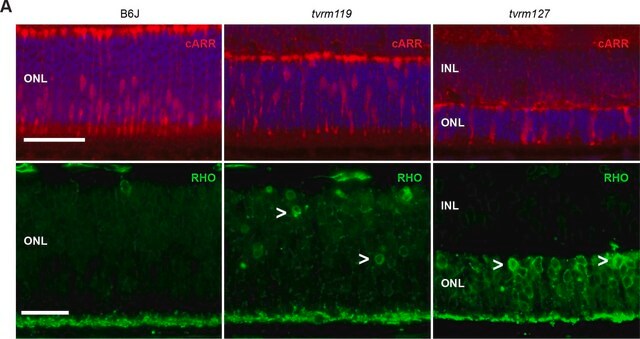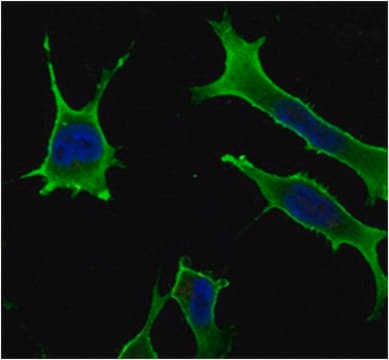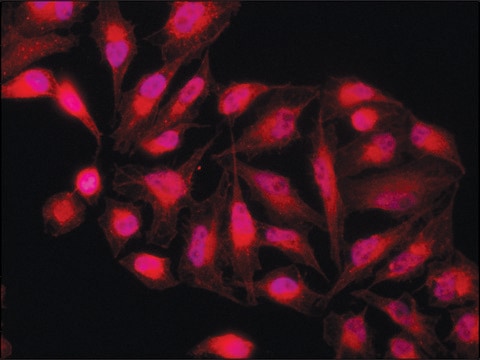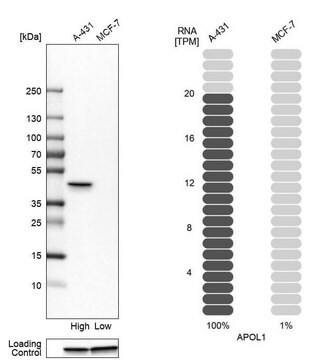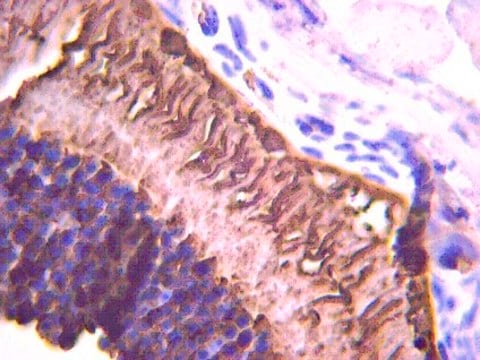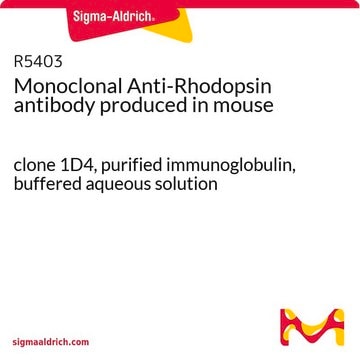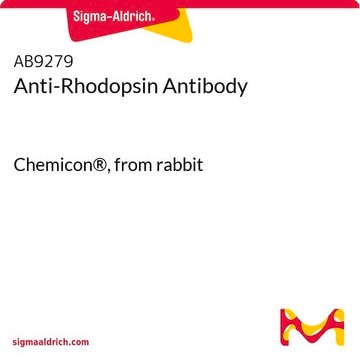MABS385
Anti-APOL1 Antibody, clone 1D4
ascites fluid, clone 1D4, from mouse
Synonyme(s) :
APOL, APO-L, APOL-I, Apolipoprotein L1, Apolipoprotein L, Apolipoprotein L-I
About This Item
Produits recommandés
Source biologique
mouse
Niveau de qualité
Forme d'anticorps
ascites fluid
Type de produit anticorps
primary antibodies
Clone
1D4, monoclonal
Espèces réactives
human
Technique(s)
western blot: suitable
Isotype
IgG1
Numéro d'accès UniProt
Conditions d'expédition
wet ice
Modification post-traductionnelle de la cible
unmodified
Informations sur le gène
human ... APOL1(8542)
Description générale
Immunogène
Application
Qualité
Western Blotting Analysis: A 1:500-2,000 dilution of this antibody detected APOL1 in human plasma.
Optimal working dilutions must be determined by end user.
Description de la cible
Remarque sur l'analyse
Human plasma lysate
Vous ne trouvez pas le bon produit ?
Essayez notre Outil de sélection de produits.
Code de la classe de stockage
12 - Non Combustible Liquids
Classe de danger pour l'eau (WGK)
nwg
Point d'éclair (°F)
Not applicable
Point d'éclair (°C)
Not applicable
Certificats d'analyse (COA)
Recherchez un Certificats d'analyse (COA) en saisissant le numéro de lot du produit. Les numéros de lot figurent sur l'étiquette du produit après les mots "Lot" ou "Batch".
Déjà en possession de ce produit ?
Retrouvez la documentation relative aux produits que vous avez récemment achetés dans la Bibliothèque de documents.
Notre équipe de scientifiques dispose d'une expérience dans tous les secteurs de la recherche, notamment en sciences de la vie, science des matériaux, synthèse chimique, chromatographie, analyse et dans de nombreux autres domaines..
Contacter notre Service technique